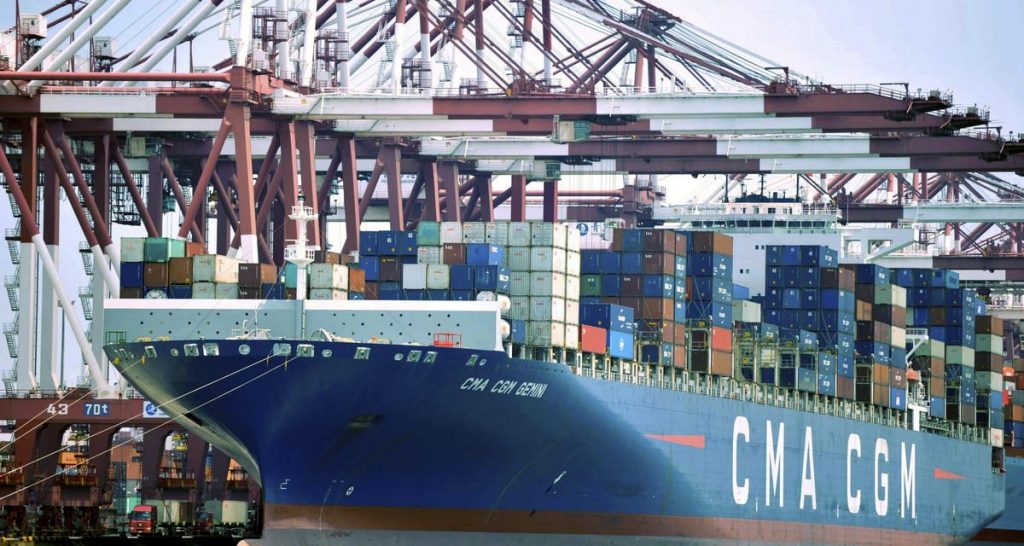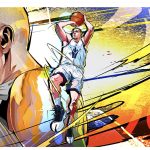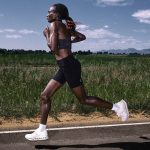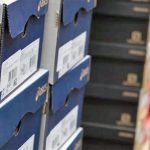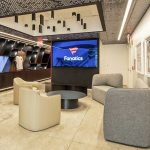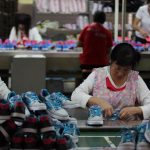GoPro last week announced plans to move most of its U.S.-bound camera production out of China by the summer of 2019 to mitigate the potential impact of inclusion on any new tariff lists. With significant uncertainty continuing, the industry is scrambling to mitigate the existing and potential tariff impact.
The impact of tariffs has also been a concern for the investment community. On recent quarterly conference calls, management of several public-held firms in the active lifestyle industry addressed the potential impact of tariffs. Some offering some insights into ways they plan to lessen the fallout.
Below, a summary of some discussions on the topic:
Clarus Corp.’s Q318 Conference Call (11/5/18): Clarus, the parent of Black Diamond, Pieps, Sierra Bullets and SKINourishment, said that based on the tariffs enacted to date, it expects a negligible impact in 2018 and an estimated impact of $450,000 in 2019. The company is working to mitigate the tariff impact through four steps. Said Aaron Kuehne, Clarus’ chief administrative officer, CFO, secretary and treasurer, on the Q3 conference call with analysts, “First, resourcing. We are working with our supply chain to come up with different sources for the product coming out of China. Second is repricing. We are working with our retailers to pass along some of the costs. Given our pace of recent product innovation, however, these conversations are a natural progression, and we believe will have a positive outcome. Third is recosting. We have been working with our vendors to renegotiate costing to offset some of the impacts. And finally, we are optimizing logistics to avoid the U.S. on international shipments.”
Columbia Sportswear Co.Q318 Conference Call (10/25/18): Tim Boyle, CEO, said that in 2018, product sourced in China will represent approximately 10% of the company’s total imported value into the U.S., more heavily weighted towards footwear than apparel. The $200 billion round of tariffs that became effective in September will impact some set to go into effect January 1, our primary product categories will not be impact an accessory category but not have a material impact on Columbia’s financial results. He said the company considers its “diverse and flexible supply chain to be one of our strengths” and implied adjustments could be made should the tariff situation escalate. But Boyle said the “escalating global trade battles have the potential to be very disruptive to our business, as well as our vendors, our customers.” Apparel and footwear also already carry some of the nation’s highest tariffs, averaging in the double digits. Added Boyle, “To add to those high tariffs with additional punitive measures would not only have a detrimental impact on our business, it would represent a significant tax on American consumers as we pass along these additional costs over time. China continues to be an important market for us both for manufacturing and sales. We have a long history of sourcing in China and remain committed to maintaining these important partnerships as the local manufacturing base is critical to our success. We also have several hundred employees in our China joint venture focused on helping Chinese consumers to stay outdoors longer with our market-leading products.”
VF Corp’s Q318 Conference Call (10-6-18): VF Corp., the parent of The North Face, Vans, Timberland and a number of other outdoor, work and denim brands, said about 11 percent for its U.S. imports come from China. The company has been reducing its exposure to the country for a number of years. CEO Steve Rendle said VF has not seen any price increases as it explores sourcing in other countries and he also expects the company’s strong relationship with factories to help limit the impact of another batch of tariffs that may affect footwear and apparel categories. Rendle said, “By leveraging our global supply chain, we have positioned ourselves to address any additional changes in the overall trade environment with China. And we have the ability to reposition our global sourcing footprint in the near to midterm to mitigate the potential negative impact of additional tariffs should they materialize.”
Johnson Outdoor’s Q418 Conference Call (12/7/18): Johnson Outdoors, which makes fishing motors and accessories, scuba diving gear, outdoor cooking systems, kayaks and camping equipment, warned that tariffs could negatively impact profits in the range of $6 to $9 million in fiscal 2019. The estimate assumes that the 10 percent tariff on $200 billion worth of Chinese imports (effective September 17) increases to 25 percent on April 1. David Johnson, VP and CFO, said the company has felt some impact from all three rounds of tariffs. The tariffs had a minor impact on the company’s costs in its just-completed fiscal 2018
Skechers USA’s Q318 Conference Call (10/19/18): Skechers underscored that none of the existing tariffs that have been enacted affect footwear. Officials also noted that while more than half of its production comes from China, that also supports rapidly-expanding sales to Chinese consumers. John Vandemore, CFO, further noted that there’s “all kinds of moving parts,” including whether China’s currency devaluation helps offset the tariff fees should another round of tariffs hit footwear. Vandemore said Skechers has diversified its sourcing over the years, has pricing power with factories, and has the capacity to move outside of China. Said Vandemore, “We will be no different I believe than anybody else. We will look for where the best availability is up for production, quality and price around the world even segregating some production of some styles from country to country depending on what the necessities are.”
Deckers Outdoor’s Q219 Conference Call (10/19/18): Deckers Outdoor, the parent of Ugg, Hoka One One, Teva and Sanuk, said it has been migrating production out of China into Vietnam and less than 30 percent of its production is done in China. David Powers, CEO, said the company didn’t have a “ton of exposure” to the latest $200 billion round of tariffs and sees “pretty minimal” exposure going forward. Said Powers, “As far as Deckers’ business goes, we feel good about those liabilities being reduced from a China production standpoint and our ability to ship product in a timely manner to avoid any issues this year.
Sturm, Ruger & Company Q318 Conference Call (11/01/18): Sturm, Ruger & Company, the firearms giant, hasn’t been impacted directly by the tariffs because it sources the vast majority of its raw materials domestically. Indirectly, Tom Dineen, CFO, added that the tariffs have made domestic steel “more attractive” for companies typically sourced as bought steel overseas. That has led to some price increases in steel and some shortages in raw materials. Added Dineen, “Our purchasing folks have worked very closely with our suppliers. Frankly, we’re price protected through the balance of this year. Next year, we do expect to see some pricing pressure on steel and raw material. However, our biggest concern remains availability. So, we watch that very closely and given the strength of our balance sheet, we don’t mind bringing in things like steel and raw materials when we need to, to make sure we’re out in front of any shortages that the market may be facing.”
Callaway Golf Co. Q318 Conference Call (10/24/18): Callaway Golf said that the tariff on $200 billion in goods enacted in September affected headgear and bags for the company. The tariffs are expected to have a nominal impact on 2018. For 2019, Callaway was estimating a $4 million to $5 million impact on 2019, assuming the tariff rate on the $200 billion in goods increased from 10 percent to 25 percent at the start of the year.
Fitbit. Q318 Conference Call (10/31/18): Wearable devices and smartwatches were excluded from the list of goods impacted in September’s $200 billion action. Asked about potential tariffs in another round, Ron Kisling, Fitbit’s CFO, said, “In terms of future tariffs, what I can say is that for the most recent lift, the administration removed our products after a lot of careful consideration and we’re confident that they’ll come to the same conclusion on any future list that they create. And in addition, there’s a number of different ways that we’re working with our supply chain to mitigate any potential risk as well. So we feel pretty good about our exposure on the tariff risk.”
Vista Outdoor Q318 Conference Call (10/25/18): The parent of Federal Premium, CamelBak, Bushnell, Primos, Camp Chef and BLACKHAWK! indicated that less than 4 percent of its business was impacted by September’s $200 billion tariff round with the company successfully working to gain exemptions on helmets and sporting optics. For the items impacted, Christopher Metz, CEO, said that due to the specialized nature of the manufacturing the items, alternative sourcing isn’t available in the short term., Metz added, “We expect that affected brands will absorb the impact through a combination of price increase and reduced margins but the final results will differ for each brand. On a positive note, we do not currently expect the cumulative financial impact on Vista to be material.”
Wolverine World Wide Q318 Conference Call (11/07/18): Blake Krueger, CEO, said the company has been diversifying sourcing away from China for the last five years and he believes it has “much lower exposure” than the average U.S. footwear company. He estimates that for 2019, Wolverine’s exposure would be about 15 percent assuming tariffs on China’s goods extends across products although he anticipates delays would lessen the impact for 2019. Added Krueger, “Should that occur we’ll, one, either continue to diversify our sourcing base, offset some of the price increases with other action or simply pass on the cost. I think it’s frustrating, because the footwear industry is the highest tariff duty industry of all U.S. categories. So putting additional duties and tariffs on the footwear industry, at least domestically here doesn’t seem to make much sense. But we’ve been on this for years now.

